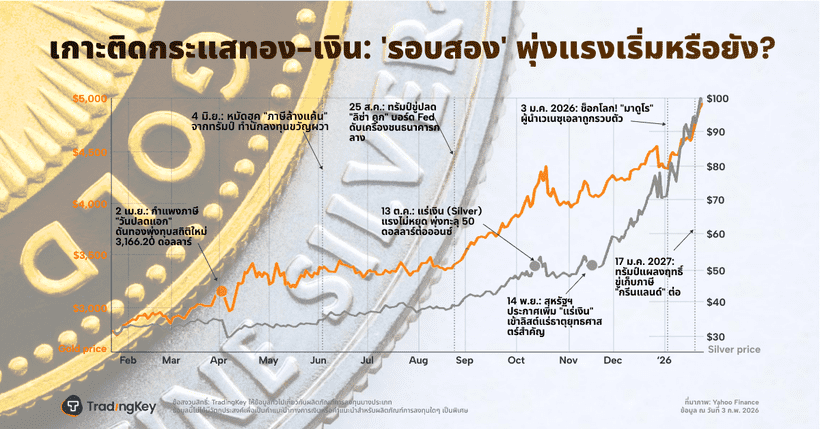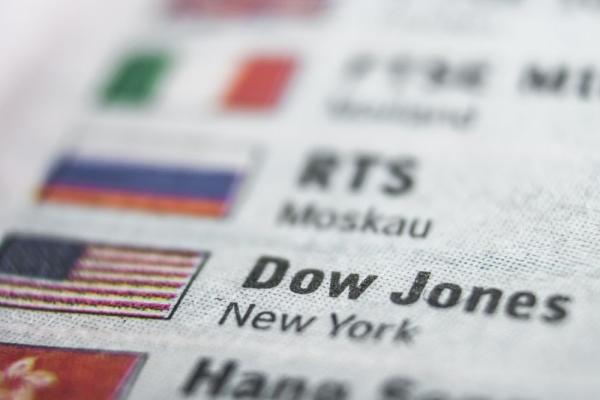กฎระเบียบของ crypto จะเป็นอย่างไรภายใต้ Trump? – ผู้มีส่วนได้ส่วนเสียชั่งน้ำหนัก

ในอีกไม่กี่สัปดาห์ โดนัลด์ ทรัมป์ ก็กำลังจะเข้ารับตำแหน่ง dent คนที่ 47 ของสหรัฐอเมริกา เมื่อมองแวบแรก หลังจากชัยชนะในการเลือกตั้งเดือนพฤศจิกายน ทุกอย่างดูเหมือนจะเป็นระเบียบในอุตสาหกรรมสกุลเงินดิจิทัล แต่จริงไหม?
การเลือกตั้ง dent สหรัฐฯ ปี 2024 ได้รับการยกย่องอย่างกว้างขวางว่าเป็นช่วงเวลาสำคัญสำหรับอุตสาหกรรม crypto นักเศรษฐศาสตร์เชื่อว่าเหตุผลส่วนหนึ่งที่ทรัมป์ชนะตั๋วของเขากลับไปที่ห้องทำงานรูปไข่นั้นเป็นเพราะจุดยืนที่ "ดัง" ของเขาในการสนับสนุนการเข้ารหัสลับ พูดตามตรง เขาได้รับการสนับสนุนจากสมาชิกสภานิติบัญญัติที่สนับสนุนการเข้ารหัสลับมากกว่า 290 คนในสภาคองเกรส มันไม่น่าเป็นไปได้อย่างมากที่เขาจะแพ้
ทรัมป์สัญญาว่าจะวางตำแหน่งสหรัฐอเมริกาให้เป็นศูนย์กลางระดับโลกสำหรับ crypto ดังนั้นภาคส่วนนี้จึงเตรียมพร้อมสำหรับการฟื้นฟูที่มีศักยภาพ
จากข้อมูลของ Coinfund Presi dent Chris Perkins การเลือกตั้งส่งสัญญาณถึงจุดเปลี่ยนสำหรับตลาด crypto ซึ่งต้องต่อสู้กับความไม่แน่นอนด้านกฎระเบียบมายาวนาน
Perkins มีส่วนร่วมใน บทความ ของ Financial Times โดยระบุว่าการเปลี่ยนแปลงนี้เปิดโอกาสให้สหรัฐฯ เสริมสร้างความเป็นผู้นำในด้านเทคโนโลยีเกิดใหม่ เช่น บล็อกเชน ปัญญาประดิษฐ์ และการเงินแบบกระจายอำนาจ ( DeFi )
อย่างไรก็ตาม เขาเตือนชุมชนว่าการมองโลกในแง่ดีขึ้นอยู่กับว่าความกระตือรือร้นหลังการเลือกตั้งจะเปลี่ยนเป็นนโยบายที่นำไปใช้ได้จริงและรอบคอบหรือไม่
ออกไปพร้อมกับสิ่งเก่า ไปกับสิ่งใหม่?
ภายใต้การบริหารของ Biden นั้น crypto เผชิญกับสิ่งที่หลายคนเรียกว่า "การควบคุมโดยการบังคับใช้" ซึ่งหน่วยงานต่างๆ ได้ขยายกฎหมายที่มีอายุหลายสิบปีเพื่อดูแลอุตสาหกรรมที่เพิ่งเกิดใหม่
เพียงแจ้ง: เชดด้า โดนัลด์ ทรัมป์ กล่าวว่าเขาจะ "ยุติสงครามกับคริปโตของ Joe Biden และรับรองว่าอนาคตของคริปโตและอนาคตของ #Bitcoin จะเกิดขึ้นในอเมริกา โดยส่วนใหญ่กำลังดำเนินการที่นี่ในฟลอริดา" pic.twitter.com/qstVuzbOAI
— DΛVID (@DavidShares) 15 มิถุนายน 2024
Critics insist that this approach blurred regulatory boundaries, wasted resources, and imposed significant costs on American companies, estimated at over $400 million. Biden, supported by US financial authorities, seemingly failed to prevent high-profile fraud cases. An indelible case is the fall of FTX, a memory the community will probably never forget.
Moving forward, policymakers and regulators are being urged to focus on fostering innovation while protecting consumers.
An imperative industry demand is the differentiation between technology and its applications, reiterates Perkins. Blockchain and cryptocurrency advocates liken the current situation to the early days of the internet: while websites and apps are not inherently illegal, their misuse can be addressed through law enforcement.
Coinfund’s President highlighted a case echoing this approach. In a recent ruling, Judge Katherine Polk Failla rejected attempts to hold a crypto exchange liable for how its technology was used, drawing parallels to payment platforms like Venmo.
Unanswered questions about the crypto market under Trump
As reported by Cryptopolitan, Cardano co-founder Charles Hoskinson voiced concerns over the lack of a clear roadmap for the crypto industry from Donald Trump. Despite Trump’s more progressive stance on crypto, Hoskinson said that he hasn’t yet outlined concrete policies for the sector’s future in the United States.
Hoskinson warned that Trump’s involvement in crypto could create a more complicated regulatory environment, noting the intense partisan divide that surrounds the former president’s actions.
“Everything Trump does the left hates with such a passion,” Hoskinson said, adding the move could take a bipartisan issue and make it partisan, potentially alienating support for the crypto industry.
He also criticized the current political discourse, stating, “I don’t see that level of quality and sophistication in the discourse.”
The alienated Ethereum co-founder also questioned whether Trump could assemble a team capable of supporting the crypto industry, referencing the former president’s history of high staff turnover.
Hoskinson’s skepticism grew after Trump announced a new decentralised finance (DeFi) platform, World Liberty Financial, which he is backing alongside his sons Donald Trump Jr. and Eric Trump, as well as property developer Steve Witkoff.
Vitalik Buterin is cautious about Trump
Back in July, Ethereum creator Vitalik Buterin weighed in on the trend of supporting political candidates solely based on their crypto stance.
In a blog post, Buterin warned against the practice of endorsing “pro-crypto” candidates, arguing that it could create an environment where politicians merely need to support crypto to gain backing without addressing the broader values that drive the industry.
“There is a growing push within the crypto space to become more politically active.” Buterin continued, “In this post, I argue against this trend, and in particular, I argue that making decisions in this way carries a high risk of going against the values that brought you into the crypto space in the first place.”
Trump could be good for crypto
Donald Trump is one very unpredictable businessman: the very epitome of controversy. On one hand, Democrats are arguing he will use the Oval Office to make the rich wealthier. On the other, Trump says he won’t take a penny of his official salary.
His first presidential campaign was pretty much against crypto, but his own son is now telling the world “Dad will be the most pro-crypto president America has ever seen.”
Trump’s proposals for the industry include rolling back existing regulations and introducing bold ideas such as creating a national Bitcoin reserve, where the government would stockpile the cryptocurrency.
Some analysts are skeptical about Trump’s stance on crypto, arguing that it could be motivated by self-interest.
Virginia Canter, chief ethics counsel at the nonpartisan group Citizens for Responsibility and Ethics in Washington, emphasized the significance of how crypto will be regulated in the coming years.
“One of the most important issues to be determined over the next couple years is how crypto is regulated,” Canter said. “Well, now, he’s an active player in the crypto market. How it could be regulated [could] affect his personal wealth, what kind of position he takes.“
JUST IN: Donald Trump has $5,417,000 invested in these 6 cryptocurrencies: pic.twitter.com/loggTKZPFR
— Andrew Lokenauth | TheFinanceNewsletter.com (@FluentInFinance) November 25, 2024
Nik Bhatia, founder of Bitcoin Layer, a firm that advocates for Bitcoin investments, suggested that dismissing Trump’s pro-crypto position as merely driven by personal gain overlooks its political dimensions. “I don’t see these moves motivated by self-interest. I see them representing the electorate,” Bhatia stated.
Nevertheless, Bhatia acknowledged a potential conflict of interest, noting that Trump’s support for crypto could directly benefit his business ventures. “I think there probably is a conflict of interest in that his pro-crypto stance will benefit his company,” he added.
Moreover, Robinhood CEO Vlad Tenev told CNBC that the US SEC’s “regulation by enforcement” approach under Chairman Gary Gensler has pushed much of the crypto innovation abroad.
Tenev suggested that a Trump administration could usher in a more “forward-looking policy,” supported by his new SEC chairman appointee Paul Atkins, who the community expects will embrace crypto.
One thing we all know is Trump wants to do what’s best for America. If crypto aligns with that sentiment, then it shouldn’t be a surprise if the president-elect keeps his promises.
A Step-By-Step System To Launching Your Web3 Career and Landing High-Paying Crypto Jobs in 90 Days.







